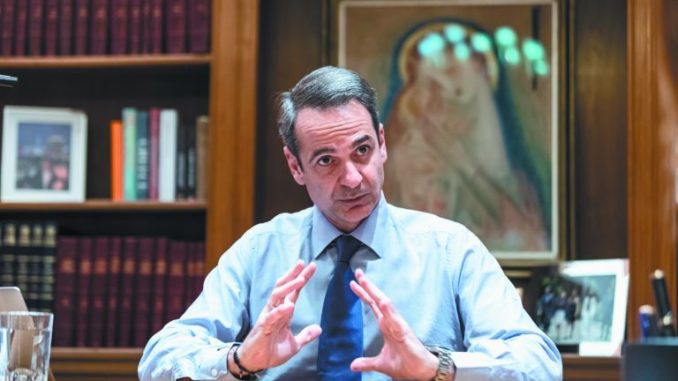For the time being it appears that the coronavirus public health crisis in this country is under control but there are always dangers lurking as we saw most recently with the confirmation of 150 asymptomatic cases at a hotel housing migrants in the town of Kranidi in the Peloponnese.
As long as such dangers can be managed rapidly it is clear that the compliance of the vast majority of citizens with restrictive measures is yielding positive results.
Greece is among the few European countries that took precautionary social distancing measures in a timely fashion.
It thus managed to check the spread of the virus and saved the National Health System which instead of collapsing successfully managed very difficult cases in its ICUs.
The health system bought time. It was not overburdened and unlike other countries’ doctors and healthcare workers Greece’s fortunately were not entirely overwhelmed.
Greece thankfully averted the heartbreaking waves of death which one saw elsewhere and which would have shaken the efforts of doctors and the trust of citizens.
Consequently, we can all hope that the public health crisis can be checked in the current phase.
The priority now must be to engage in an equally serious manner in the process of restoring the basic functioning of the economy and freeing the citizenry from the bonds of the pandemic.
The health ministry is already preparing intensively.
The National Public Health Organisation (NPHO) is processing the data and studying timetables for a gradual lifting of restrictions, beginning with activities that involve limited gatherings of people and always on condition that social distancing measures and all necessary precautions will be enforced.
Meanwhile, the government’s economic team has overall been active and swift in preparing for the major challenges that lie ahead.
Those monitoring and participating in decision-making have witnessed a spirit of understanding and a desire to expedite and swiftly implement the necessary measures to save Greek businesses and to normalise the operation of the many locked down markets.
It is indicative that in record time for the normally sluggish Greek state it took only five days to implement a key measure to subsidise interest payments on business loans.
If that spirit of understanding the extraordinary circumstances with which the economy is confronted is maintained and if the government’s rapid reflexes become the order of the day we can all be optimistic that economic normalisation can be achieved with the least possible cost for the economy and society.



